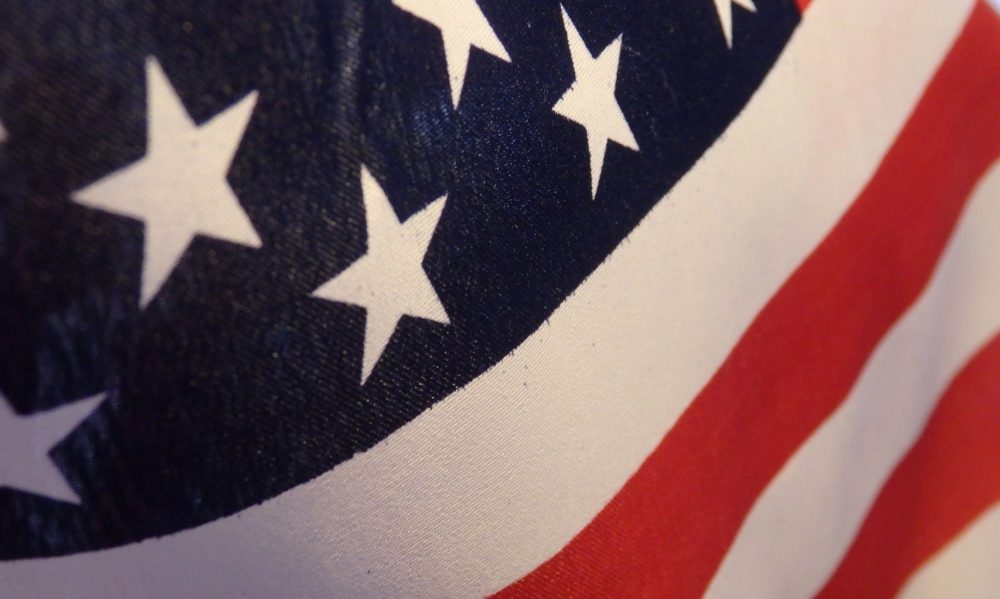The American Dream
The following post is one of a series about American values sparked by my renunciation of US citizenship in November 2015.

In my last two posts, I discussed four of the six key American values emphasized in the textbook American Ways: individual freedom and self-reliance, and then equality and competition. The last two are material wealth and hard work, and in many ways these are, or at any rate have become, core values in American society. They’re what informs the American Dream.
It all started with the earliest settlers: the Puritans. Their idea of a “pure” religion required that they devote their lives to doing God’s will, which involved piety and hard work. Implied in that belief was the idea that if one prospered as a result of that hard work, it was God’s reward for piety.
Hard Work
Over the generations, the emphasis has shifted away from piety, but remained on hard work. To this day, Americans believe in hard work as a solution to just about any problem.
Doing poorly in school? Study harder. Didn’t get picked to play on the team? Practice harder. Didn’t get the promotion you expected? Work harder—which often translates in the US to working far more hours than you’re paid for.
Material Wealth
The Puritans may have believed that wealth was a sign of God’s grace as a reward for hard work, but these days the two are linked more directly. It’s a very simple message: if you just work hard enough, you too can become wealthy.
As in Puritan times, then, material wealth is nothing to be ashamed of. It’s okay, even admired, in the US, to show off your wealth. Here in the Netherlands, Calvinistic sobriety dictates that displaying your wealth is Just. Not. Done. Americans, on the other hand, love to splash out publicly. The huge mansion, the top-of-the-line car, the diamond jewelry: it’s all okay, even admired, as a sign of your just reward for working hard.
This is one of the reasons, I think, why Donald Trump gets so much support. His campaign website describes him as
“the very definition of the American success story, continually setting the standards of excellence while expanding his interests in real estate, sports and entertainment.”
His wealth, then, is admirable in American culture. It’s no wonder he brings it up so often.
The American Dream
Which leads us, of course, to the American Dream. For many who immigrated to the US, like my grandparents who were Jews from the Ukraine, the American Dream was a combination of all the values I’ve discussed.

Once they had arrived, material wealth and the opportunity to pursue it were what mattered most. They were happy to put in whatever work was necessary to achieve that material wealth. For many, too, it meant foregoing enjoying the fruits of their labor themselves in order to make the American Dream possible for their children.
My grandparents worked hard all their lives. They worked their ways out of poverty, though they were never wealthy and never had the opportunity to get an education beyond high school. Both my parents, on the other hand, were able to go to college and attain all the hallmarks of the American Dream: a large home in the suburbs, two cars in the garage, children who could also go to college, and the occasional trip, even overseas.
The Overseas American and the American Dream
I have always believed in the American Dream too, though defined somewhat more broadly to mean whatever you dream, not exclusively material wealth. I have always bought into the value of hard work. I urge my children and my students to work hard—to do their very best—in order to reach their goals. If they fail, I tell them to work harder.
So here I am, in the Netherlands with my Dutch husband, living the American Dream. Our typical upper-middle-class lifestyle has allowed us to get a good education, live comfortably, and travel often. One of our kids is doing her Masters and the other is in secondary school preparing for college.
We live the American Dream, yet we’re not in America. Maybe that’s the lesson to be drawn from this whole situation with FATCA and renouncing citizenship and the threatened withholding of passports and all the rest of the complicated, unfair mess that is American policy toward overseas Americans: the American Dream is available in other places as well.
I feel as if, rather than rejecting America, America has rejected me by making it so difficult to remain American. Yet I’ve embraced American values to an extent I wasn’t even aware of.
If truth be told, what it comes down to is this: I don’t need America to attain the American Dream.
If you’re an overseas American, I’d love to hear from you! And even if you’re not! Just add your comment below.
My whole US citizenship series:
- Part 1: Giving up US citizenship?
- Part 2: Republicans, expatriates, and FATCA
- Part 3: How my citizenship hit me in the gut
- Part 4: My renunciation day
- Part 5: Thanksgiving reconsidered
- Part 6: FATCA, the Tea Party, and me
- Part 7: Individual freedom, self-reliance and renunciation
- Part 8: Equality? Competition? Not overseas!
- Part 9: The American Dream
- Part 10: The irony of renouncing under duress
- Part 11: Open letter to President Obama in response to the State of the Union Address
- Part 12: 7 Reasons NOT to renounce
- Part 13: Citizenship matters
- Part 14: Citizen of a parallel world
- Part 15: Renunciations in the news
- Part 16: Vote … as a non-citizen? Really?
- Part 17: The ridiculous story of a pilot and his taxes
- Part 18: On receiving my Certificate of Loss of Nationality
- Part 19: So you think you want to emigrate…
- Part 20: Indignation Fatigue and FATCA
- Part 21: The US election, as seen by Americans overseas
- Part 22: On receiving my California voter ballot
- Part 23: Watching America fall apart on my renunciation anniversary



One candidate wants to Make America Great.
What candidate wants to Make Things Great for Americans?
Now that I can’t vote in the US, I feel like I’m seeing the candidates more clearly than before, and I’m not taking sides. I think every single one would say they want to make things great for Americans. But what we overseas Americans are seeing is that when they talk about Americans they don’t mean us. We are ignored and unrepresented.
Sadly, you captured the reality. And although The Netherlands and Switzerland are not perfect there is a sanity.
Definitely! There’s a lot about the Netherlands I could criticize, but the basics are good: a good, fair social safety net, fair taxation, a much less extreme range from rich to poor, etc.
Working hard is all well and good, as long as you are focusing on the right things. If you aren’t it doesn’t matter how much effort you put into something…
Yes, and I would argue that if your goal is to get more stuff–bigger house, better car, fancier TV–you may be attaining the American Dream but you may find out it doesn’t make you happy.
Very interesting Rachel and I see myself in your description of the hardworking American who worked harder and longer hours for years to pursue the dream of career success and material wealth. And, as the middle class shrinks and the poor go hungry and homeless it’s hard to swallow the fable of “The Greatest Country…” Disenchanted with it all …
And yet I’d guess that most people still believe this. “If I just work harder I can get that job/promotion/whatever.” “Disenchanted” is a good word. It implies no longer being under an enchantment, and I think that happens when we spend time in other countries.
Hi Rachel. I also believe in the American Dream but what I don’t believe in or like is the fact that America is chasing her expats all over the globe with cbt and fatca. I left the US when I was young and had no money. I still don’t have any except for what my European husband earns and yet I feel threatened and frightened to be an American.Scared of the crazy penalties that I could get without even knowing what I am guilty of!! The tax accountant here is so expensive that it is truly impossible to stay compliant. This is not a “dream” but more like a nightmare and I, too, am strongly considering renouncing next year. I was hoping the Republicans would do something for us expats but I’m loosing hope to be honest. It breaks my heart to give up my citizenship but I feel like I have no other choice. Why? Why is this happening to us??
Yes, we’re all running scared right now because it’s so hard to know if we’re fully compliant or not because it’s all so complicated. Every ‘expert’ gives different advice and charges you for it. And you have to be fully tax-compliant in order to renounce. And even once you renounce you can still get audited … it’s a nightmare, and totally unfair. I wouldn’t wait for the Republicans to do anything about it. We don’t represent enough votes, and it would make it too easy for the Democrats to accuse them of being ‘soft on tax cheats.’ They have no incentive to fight that battle. I think our only chance of changing this is through the court system, but that’ll take a while…
Hi Rachel,
I love your blog!!! We have a lot in common: I’m an American and I lived in Groningen. I’d really like to get in touch with you about you renunciation.
Hope to hear from you,
Kind regards,
Marianne Sturman
Thanks! Use the contact form here on the site, which will give me your email address so I can mail you mine.
Hi, just stumbled across your site from a Barcelona facebook page. I think I’m figuring out what the differences are for just not filing at all and filing as you have been doing. I guess it all comes down to if you have something to lose. The one thing that is forcing me to be compliant is that one day I will have a sizeable inheritance from my parents and I wouldn’t want to have the IRS tax it (with the penalties and fines) before it reaches me. Though, this is my first year living abroad so I still haven’t filed my taxes for 2016…I know, I’m bad. Hoping because I haven’t even made income in Spain (been au pairing in exchange for room and board) I won’t have to do all the forms…Not even sure where to begin…Thanks for writing this blog. I have read several of the articles and will be subscribing. Very insightful and also a bit of a wake up call for me that I need to stay on top of this while abroad, even if I’m pretty much a street urchin 🙂
You really should check out the Isaac Brock Society website: http://isaacbrocksociety.ca. They have a Canadian focus but you can find all the information you need that’s relevant to your particular situation. I haven’t filed mine either: overseas filers get a 3-month extension!